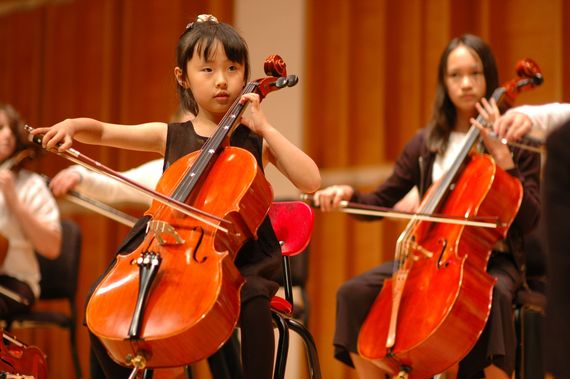Now that Memorial Day has sailed past us and the end of the school year is in sight, many families are thinking about how to fill the summer days ahead and keep kids engaged at a time when schedules and routines are disrupted.
Some proactive parents are also thinking about ways to block the "summer slide" and involve their children in fun educational opportunities while they are out of school - pulling reading lists together with the help of teachers and their local libraries, enrolling kids in various camps or summer programs, and finding creative ways to incorporate learning into everyday activities.
The "summer slide" isn't new. Teachers have long lamented the detrimental effects of the "brain drain" or "summer learning loss." The National Summer Learning Association has spearheaded groundbreaking research to support the fact that most students, and especially those from underserved communities, lose about two months of grade level equivalency in mathematical computation, reading and other academic skills over the summer months. Additionally, parents often cite summer as the most difficult time to ensure that their children have productive things to do.
Of course, while math and reading competency are critically important, academics aren't the only piece of a child's summer learning that we should think about. All subjects are inter-related and, in fact, overwhelming research shows that learning to play a musical instrument helps kids develop focus, determination, creativity, confidence, perseverance, collaboration, and problem solving skills.
At Kaufman Music Center, the institution which I head, parents from our Special Music School (PS 859; the only school in NYC that has music as a major subject) and Lucy Moses School (the largest community music school in NYC), ask us about how to bridge the summer gap. My suggestion is always to use this "time of disruption" as an opportunity for thinking differently about kids' learning - perhaps more experientially than academically.
This can be as simple as introducing a child to a new instrument at a summer community event - such as at Kaufman Music Center's Instrument Petting Zoo, an afternoon in which children can try the guitar, violin, flute, or bassoon, to name a few, under the guidance of experienced faculty. Many local organizations like the YMCA or Boys & Girls Club of America also have free programs offering summer music instruction. Or it can be as involved as working to continue advanced musical training during this "off-season." In truth, playing an instrument is like training for a sport. Taking a break is sometimes needed, but physically practicing to stay active during the summer is also important in order to stay in shape and prepare for the "new season." Serious music students should ideally continue lessons with a teacher over the summer even if the sessions are less frequent. If the teacher isn't available, it's ok to work with a temporary instructor, especially when the primary teacher has helped to create a plan for the summer.
As an alternative to lessons, I would propose looking for a "study buddy" to help work on practicing a few times a week -- perhaps a college or high school student studying music. This might not be a lesson in a traditional sense, but it still is reinforcing what the child has been taught. Finding a practice buddy can be as easy as contacting a local college or university where you are vacationing. Or given that many summer destinations feature performances by local musicians, contact a local music school, library, or community of musicians to find a possible instructor.
Additionally, while your family's routine may be different during the summer, if you want to create real continuity, you should set a schedule. Make a practice plan and stick to it - don't leave it open-ended. Help to encourage your child to practice at a time of day when his or her energy level tends to be high. If it works for your family, get it out of the way early in the day so the child can dedicate time to practice and then go play. That way there is also a built-in reward.
If you really can't bring an instrument or find access to an instrument where you're vacationing, look at other areas of music education, like studying theory. Talk to your child's teacher about exercises in a music theory workbook or find programs online to help supplement his or her learning.
And finally, back to thinking differently: why not make a "project" of creating a music environment wherever you are. You can put together playlists with your child, or create a summer learning list of musical works with the child's teacher. Throw in a dollop of information about some of the pieces. In this way, you are helping your child to learn about music and experience the joy of music simply by listening. Whether it's instrumental and orchestral music, jazz, hip-hop, or the blues, finding a song or artist that is inspiring will do wonders for kids' summer learning. And there's no test!
Music, in all forms, is not just good for the ears and heart. It's also good for the brain.
